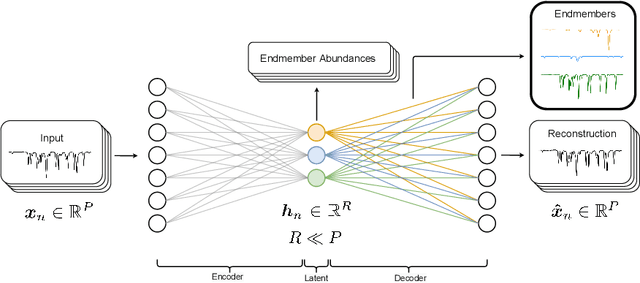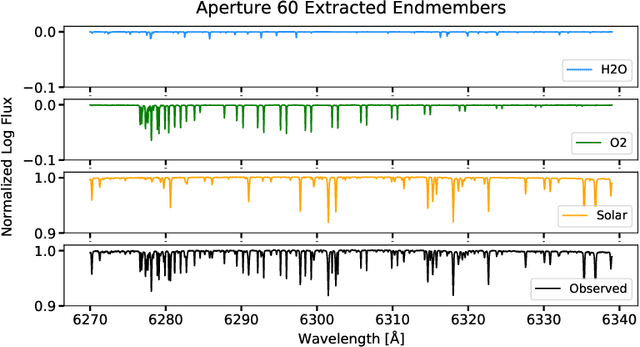Alexander D. Rathcke
Unsupervised Spectral Unmixing For Telluric Correction Using A Neural Network Autoencoder
Nov 17, 2021


Abstract:The absorption of light by molecules in the atmosphere of Earth is a complication for ground-based observations of astrophysical objects. Comprehensive information on various molecular species is required to correct for this so called telluric absorption. We present a neural network autoencoder approach for extracting a telluric transmission spectrum from a large set of high-precision observed solar spectra from the HARPS-N radial velocity spectrograph. We accomplish this by reducing the data into a compressed representation, which allows us to unveil the underlying solar spectrum and simultaneously uncover the different modes of variation in the observed spectra relating to the absorption of $\mathrm{H_2O}$ and $\mathrm{O_2}$ in the atmosphere of Earth. We demonstrate how the extracted components can be used to remove $\mathrm{H_2O}$ and $\mathrm{O_2}$ tellurics in a validation observation with similar accuracy and at less computational expense than a synthetic approach with molecfit.
 Add to Chrome
Add to Chrome Add to Firefox
Add to Firefox Add to Edge
Add to Edge